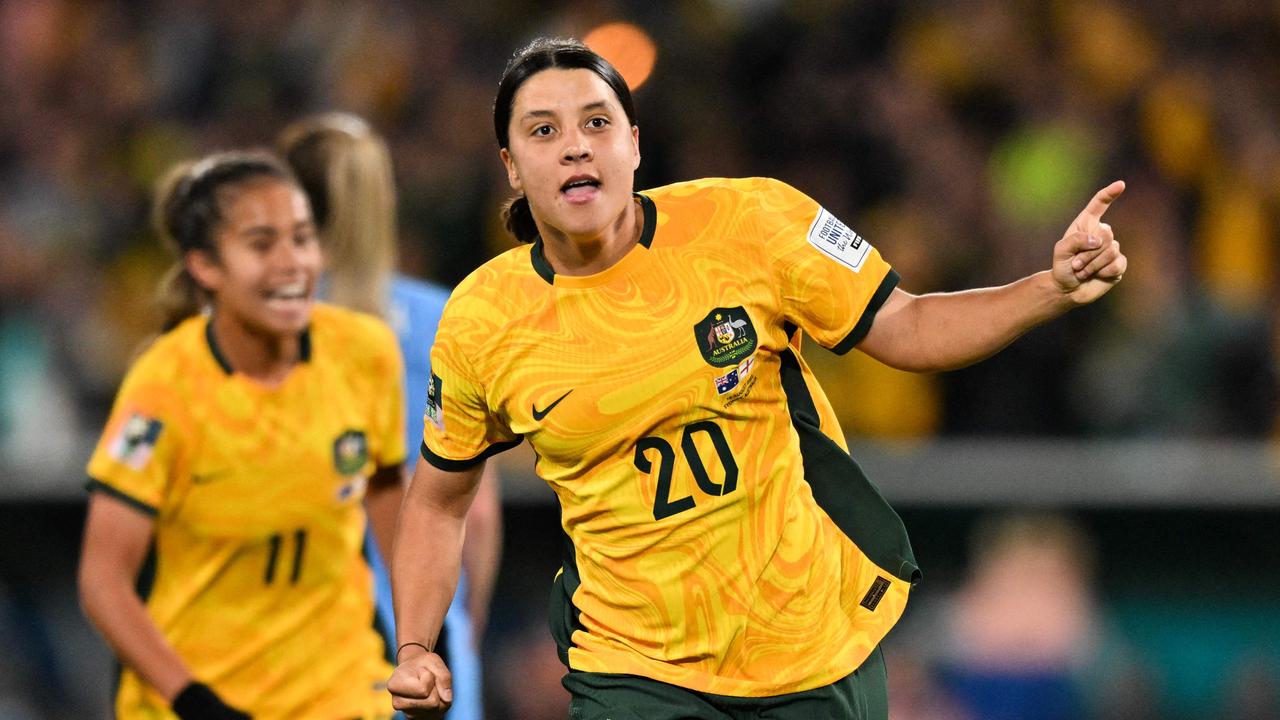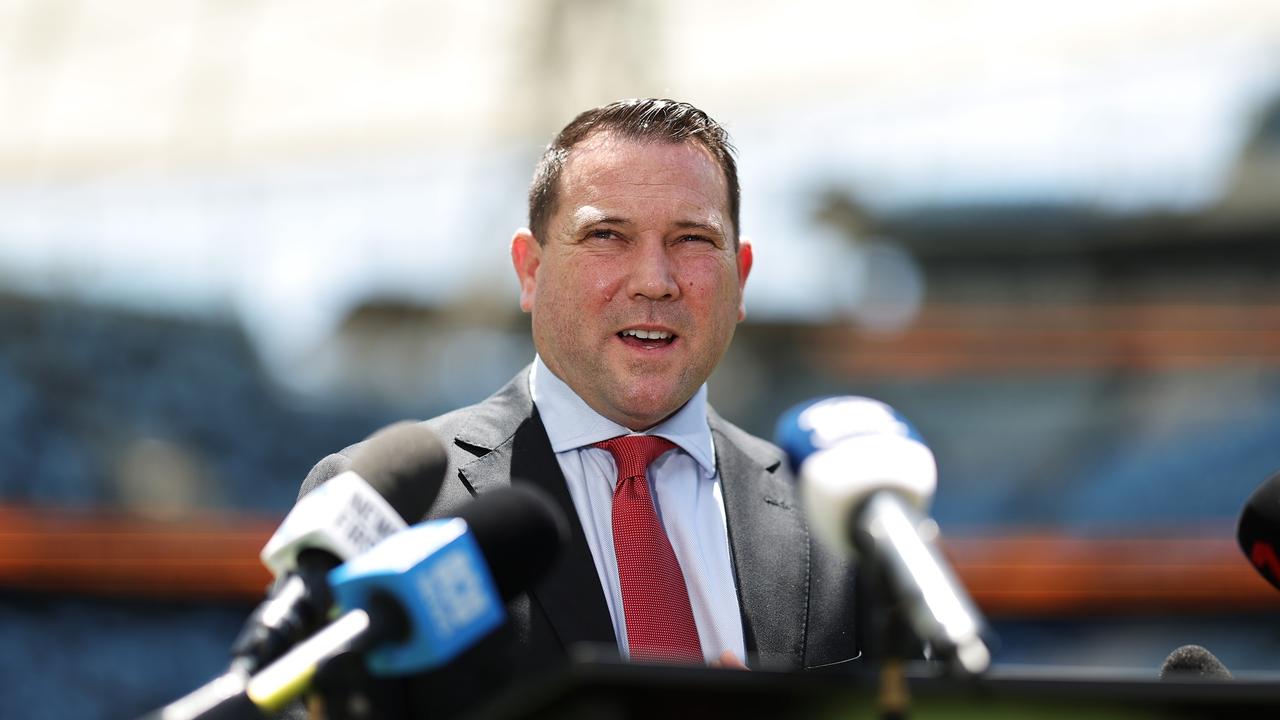England manager Sarina Wiegman’s groundbreaking journey, what’s next after FIFA World Cup
Sarina Wiegman has enhanced her reputation as one of the world’s best managers, with speculation swirling she could succeed Gareth Southgate. MATT DICKINSON unpacks what makes her such a powerful coach.
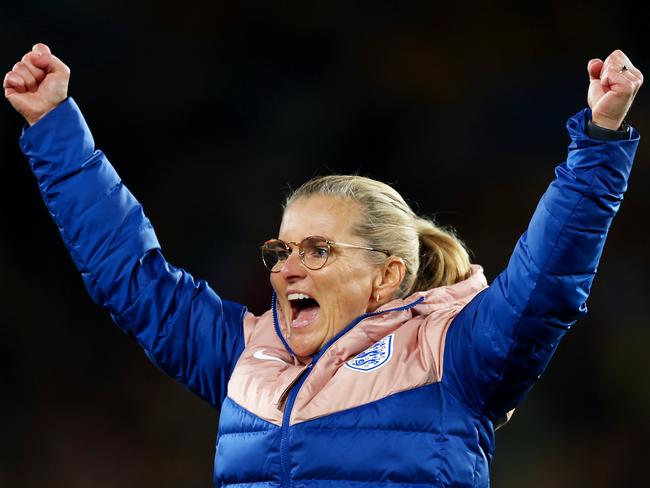
When Sarina Wiegman gathered the England players and staff around her on the pitch in Sydney straight after the World Cup semi-final victory over Australia, did you not long to join that joyous huddle? To feast on the words of this special leader?
Spanning the glee of celebration, the thrilling opportunity ahead and a wonderful collective spirit, it looked like the sort of uplifting pep talk we could all do with from a boss who would remain unflappable if put in charge of the economy, the country or, as the FA publicly debated, the England men’s team.
There is no shortage of new heroines to embrace among the pride of Lionesses who will hope, with justified confidence, to become world champions on Sunday morning, but Wiegman stands out for so coolly steering her squad through all the vicissitudes of injuries, suspensions, setbacks and pesky Australians sticking the ball into the top corner from 25 yards.
Out of unexpected challenges and untimely blows, she has built the best team in the world. Now they just have to prove it one more time.
And if that matters mostly because of the happiness that this brilliant Dutchwoman is spreading around the nation, it is also significant because of all she stands for: she is tactically smart, strategically clever, resourceful, composed and inspirational, and she possesses clear conviction. In other words, the sort of manager that anyone would want in charge of a team.
Only one manager has led two different countries to a men's or women's FIFA World Cup™ final 👑
— Optus Sport (@OptusSport) August 17, 2023
Sarina Wiegman.
The Netherlands in 2019. England in 2023.
Managerial royalty.#FIFAWWC#OptusSportpic.twitter.com/ueNXgrv1HT
Perhaps it was not much of a punt by the FA to appoint the coach who had taken the Holland women’s team to successive tournament finals, but the historic success of the Lionesses is reward for the organisation’s pragmatic stance in picking an overseas coach.
“If you’re asking the priority, whether it be in the men’s or women’s game, it’s somebody that is going to give us the best chance of success and I think in Sarina we’ve got that,” Mark Bullingham, the FA chief executive, said.
While the organisation would want to promote homegrown talent – and Gareth Southgate’s Englishness and intimate understanding of the challenges feel integral to his success – the adaptable rather than ideological position has yielded a European Championship and could yet bring world glory.
In all the excitement, Bullingham was pushed on whether he could imagine Wiegman managing the national men’s team. “Firstly I think it’s a bit disrespectful of the Lionesses to project it as a step up,” he said, though that rather depends if we are looking at, say, salary as a measure of status.
He went on: “People always say it is the best man for the job or the best Englishman. Why does it have to be a man? I think our answer is always, ‘It’s the best person for the job.’ We think Sarina is doing a great job and hope she continues doing it for a long time. I think Sarina could do anything she wants in football.” Who would doubt it?
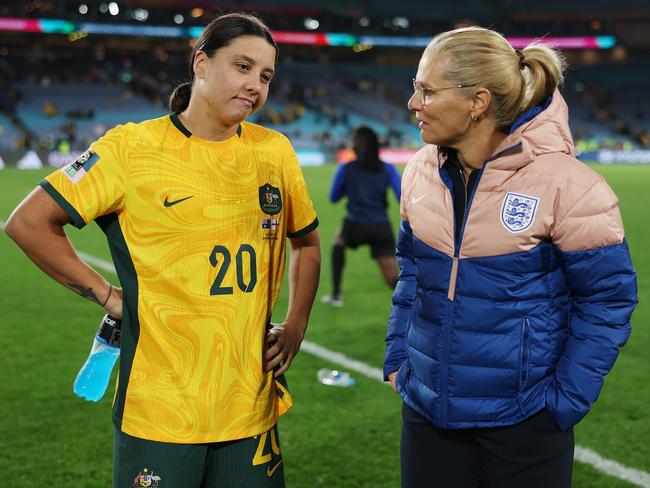
At this point you may ask whether we even need to mention the men’s game. Trying to make comparisons is often fatuous – even 1966 links feel strained this week – but this issue matters, not least to Wiegman, who has talked about opportunities for female coaches.
And unless you subscribe to the bizarre notion that 50 per cent of the population are for ever excluded from managing a men’s team, those opportunities should come across the entire game. As this column has noted previously, I cannot think of an industry or workplace that is not enhanced by a mix of outlooks, including gender balance. Is men’s football steadfastly going to see itself as a binary world of its own?
Not to have had one female manager in 135 years of League football would, in any other walk of life – big business, the police force, government – rightly be challenged. Wiegman challenges it with every bonding team talk, smart selection and shrewd decision.
One of 12 female head coaches compared with 20 men at this World Cup (a proportion that has not changed since the previous tournament), and the last one standing by the semi-finals, her strengths have become even more apparent the more players she has lost.
Denied Leah Williamson, her captain, as well as Beth Mead, star of the Euros, and the playmaker Fran Kirby, Wiegman never betrayed any doubt, despite most pundits significantly downgrading England’s chances. Out in Australia, she switched formations when Keira Walsh was injured; adapted quickly to the deflating dismissal of Lauren James. She has persuaded players to take up new roles, convinced them that they have physical and mental qualities to endure any difficulty.
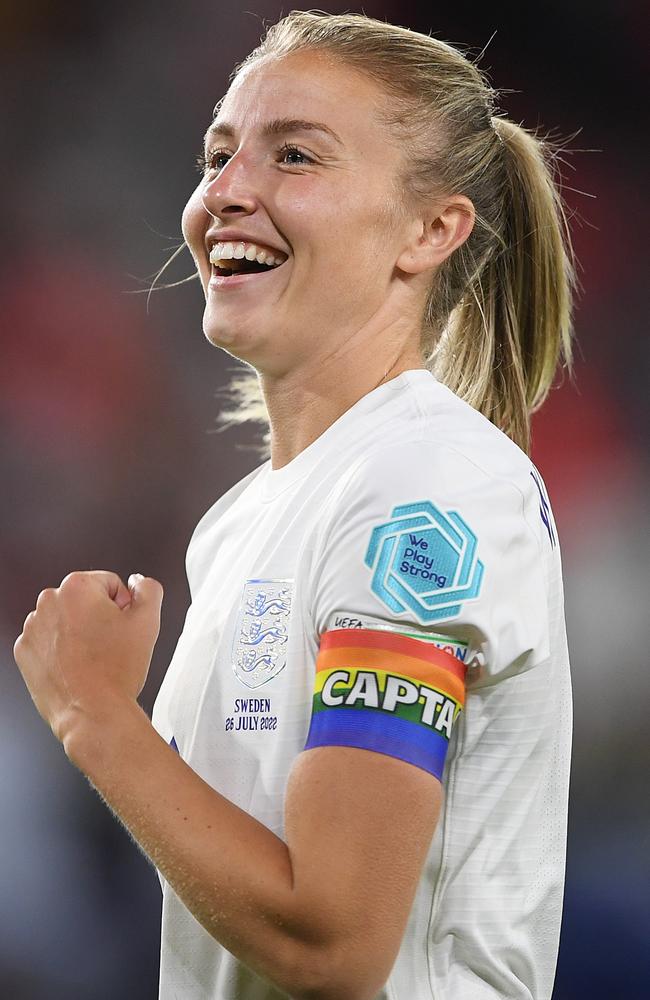
We do not even need to wonder if she could handle herself in the men’s game given that Wiegman spent a year as an assistant coach at Sparta Rotterdam in 2016 among the men, in a year when she also became one of the first women to hold a UEFA Pro coaching licence.
“She came in, the first day, and there was a ‘click’ between us,” Ole Tobiasen, the Danish coach at Sparta, said. “It was easy for me to see that I could trust her. She had the tactical view, she could see, we were speaking the same soccer language; we wanted to see players between the lines, we wanted to see not straight balls, we want to have special angles and stuff like that.”
Wiegman set about the work with customary lack of fuss. “It was a thing because I was a woman, but I just did my job and I worked well, as well as I could,” she said. “That was it, I was always thinking, ‘I’m doing my job, I’m doing the best I can.’ ”
"That's the beauty of the game and the growth of women's football." ðŸ‘
— Lionesses (@Lionesses) August 11, 2023
Sarina Wiegman on how competitive the #FIFAWWC has been so far... pic.twitter.com/ziOGRoCnNe
After an extraordinary run of four finals in four tournaments, it will be interesting to see what Wiegman does next – the US women’s team have a tempting vacancy and the need for a rebuild – and she may want to remain a champion for a women’s game in which the number of female elite coaches remains, understandably, very much work in progress as professionalism spreads.
But the questions will, rightly, keep coming to the game’s leaders like Bullingham, who acknowledged: “Do I think football is behind other sports in terms of lack of female coaches at the top level? I do, and I think that has to change.”
Old tropes and lazy, antiquated attitudes are, very slowly, being broken down. Brentford have appointed Lydia Bedford to coach their male under-18s. Forest Green Rovers put Hannah Dingley in temporary charge of the first team over the summer. Emma Hayes, the highly admired coach of Chelsea Women, has attracted managerial offers from the lower leagues and from a men’s team in the US.
The world turns, and Wiegman’s excellence gives it another hefty nudge. It is not just the England cause that she advances with every impressive victory.



